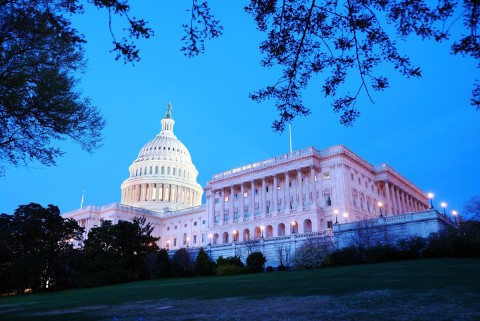WASHINGTON - A congressional subcommittee is preparing for a major hearing next week to examine a broad package of legislative proposals aimed at strengthening online protections for minors. Among these proposals is a federal age-verification bill that, if passed, would require adult-content websites nationwide to verify users based on age before granting access.
The hearing, scheduled for December 2, was announced by House leaders overseeing technology, commerce, and consumer protection issues. In their joint statement, the committee chairs emphasized the urgency of addressing the risks young people face across digital platforms and noted that both policymakers and families are pushing for long-lasting safeguards.
According to the announcement, the session will cover a total of nineteen bills touching on various aspects of youth safety. Topics include data privacy, gaming environments, messaging platforms, the effects of algorithmic recommendations on minors, and the increasing influence of bots and artificial intelligence. One of the central items on the agenda is a revised version of a youth-safety bill that has been debated for several years, now updated to address criticism of earlier language that placed heavier obligations on tech companies.
However, the proposal with the most direct consequences for the adult-content sector is a measure known as the SCREEN Act. This bill is modeled closely on age-verification rules that several states have already enacted or attempted to implement. If adopted at the federal level, the act would fold violations of age-verification requirements into the Federal Trade Commission’s enforcement powers, allowing regulators to impose civil penalties that could reach $10,000 per instance.
The legislation was introduced earlier this year by a senator widely known for advocating restrictions on adult content and for supporting efforts to revive federal obscenity enforcement. The bill has received vocal backing from a range of conservative and religious advocacy groups. In addition, organizations representing age-verification service providers have expressed support, as many stand to benefit financially from widespread adoption of these compliance systems.
Legal experts have pointed out that similar laws have been struck down in previous court cases over concerns about constitutionality, excessive restrictions on speech, or insufficiently clear implementation guidelines. Some attorneys argue that the current bill would likely face the same scrutiny. If courts determine that the requirements are overly broad or impose unreasonable burdens, the legislation could be overturned.
On the other hand, some analysts suggest that if lawmakers craft the bill narrowly focusing strictly on commercial adult sites and defining precise, workable verification methods it could have a stronger chance of surviving legal challenges.
The upcoming hearing marks the first step in what is expected to be a lengthy debate over how far the federal government should go in regulating online access and what balance should be struck between child protection, privacy rights, and constitutional freedoms. Lawmakers have emphasized that they hope to create measures that are durable, practical, and capable of withstanding both technological change and judicial review.













